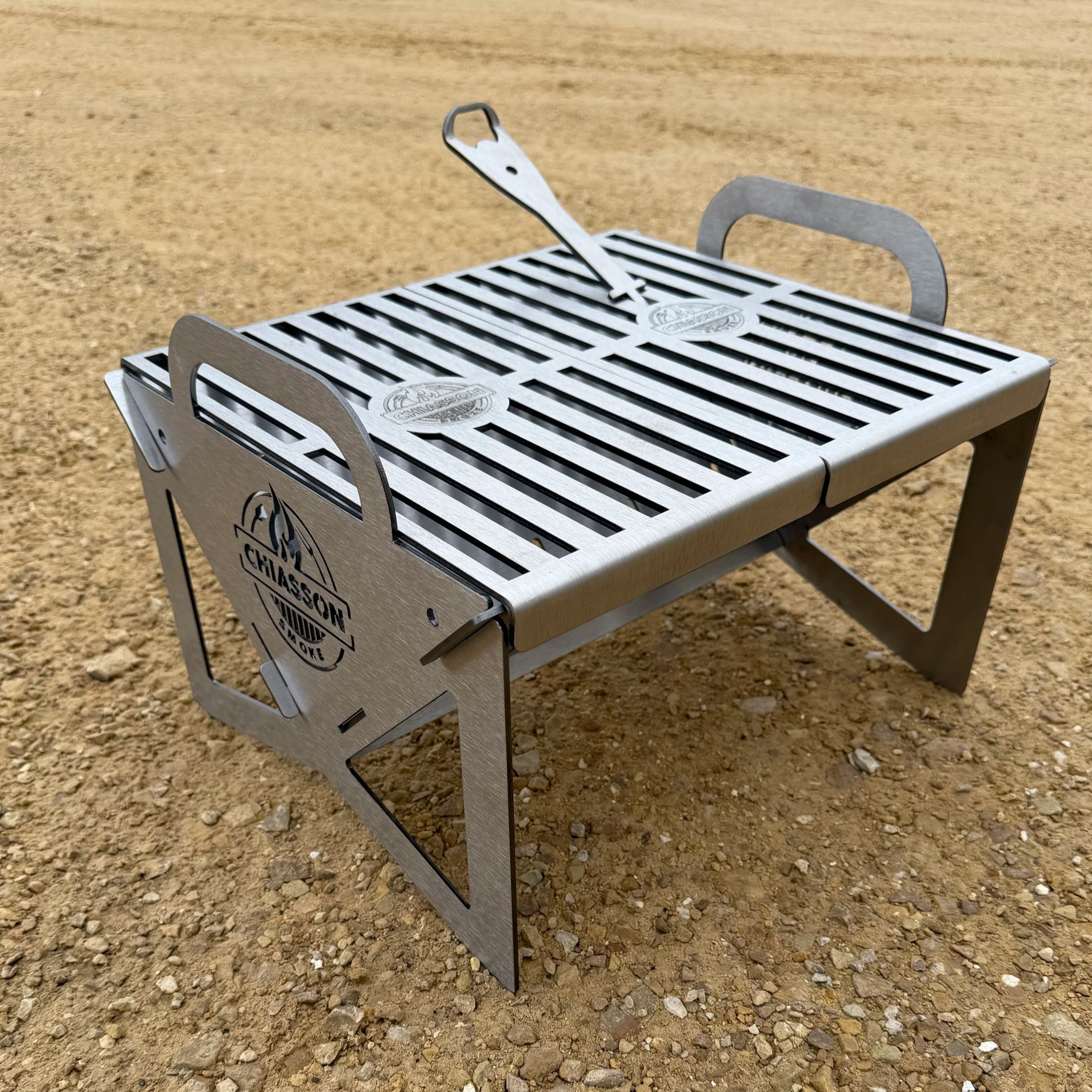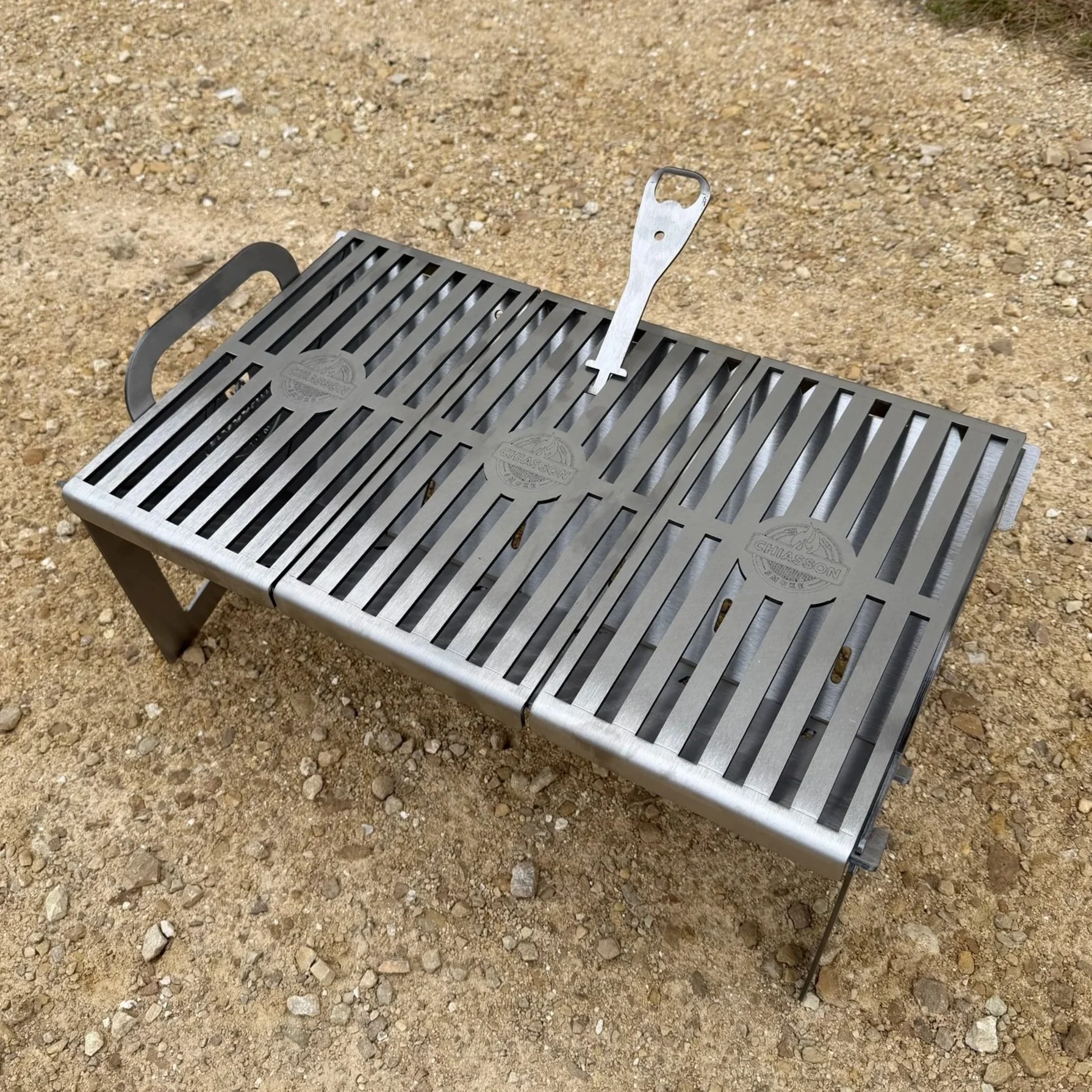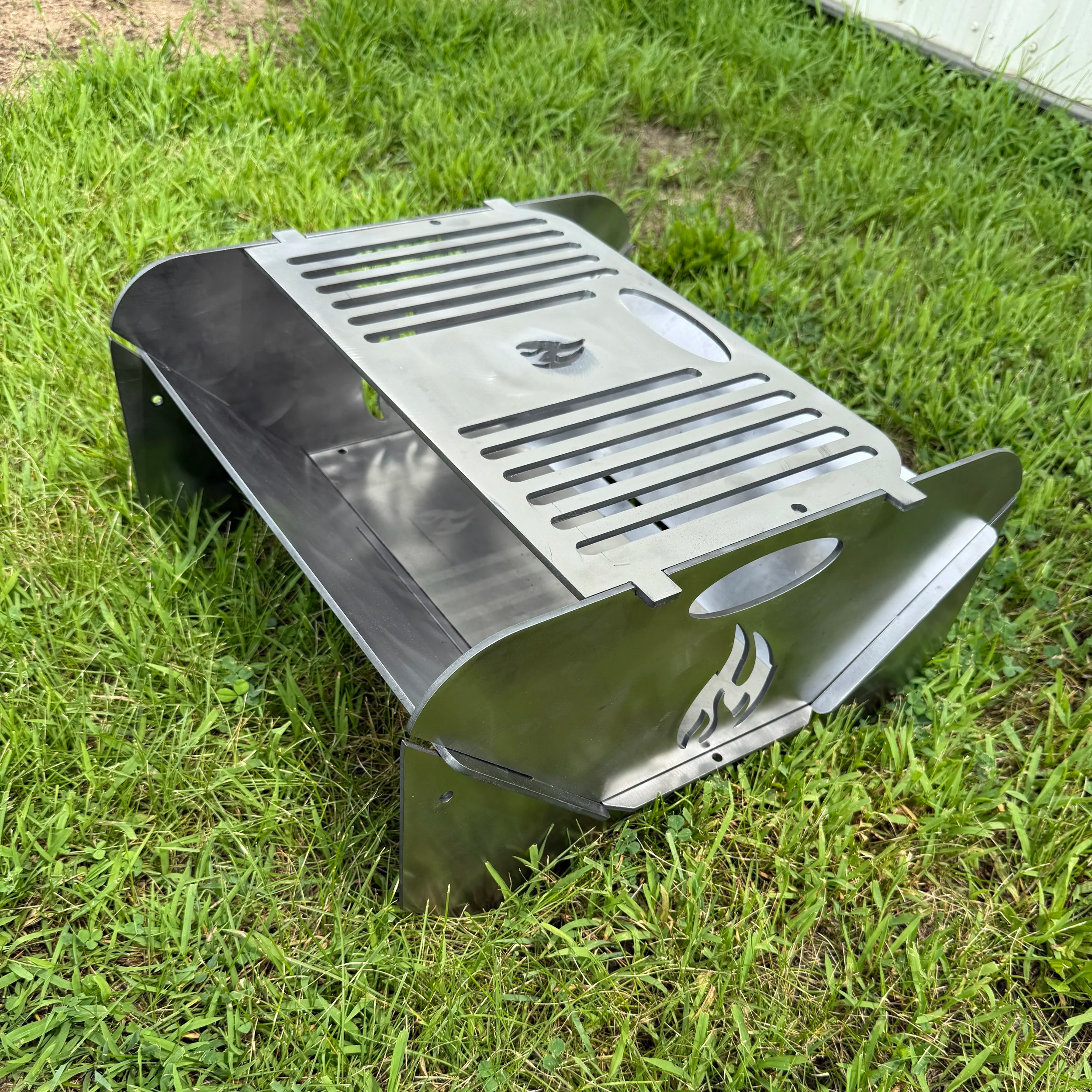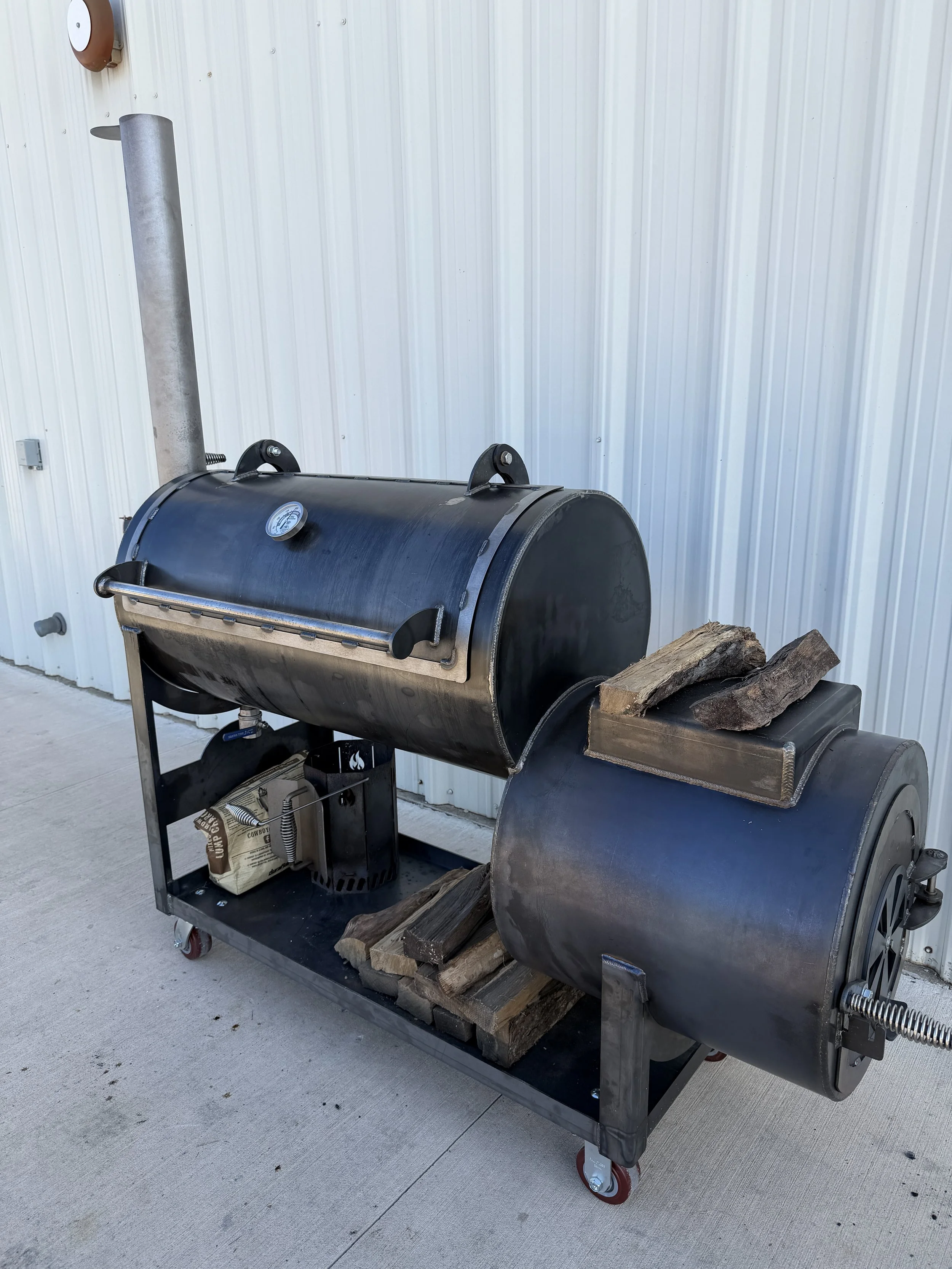Staying Safe with Rocket Stoves
Rocket stoves get HOT. Really hot. That’s how they cook food so quickly. But this also means they can burn you if you touch the wrong part. Unlike a kitchen stove with dials and handles, rocket stoves are often just made of metal or bricks, and all of it can become scorching.
If you accidentally bump into one, you might end up with a painful burn. So, it’s a smart idea to treat a rocket stove like a tiny campfire. Keep your hands, clothes, and gear a safe distance away. Kids and pets should never play near one, either. And always have something like tongs or gloves when handling pots or pans on top.
Still, this isn’t a reason to ditch the idea of using one. In fact, the heat is one of the best things about rocket stoves. Just remember: the heat is your friend when you respect it.
Wind and Flames: Fire Safety in the Wild
When you’re out camping, wind can sometimes be tricky. If the wind blows hard while your rocket stove is running, sparks or embers can fly out. That could start a wildfire or burn something nearby.
To stay safe, always set your stove on a flat, stable surface that’s not near dry grass, leaves, or anything that can catch fire easily. Also, if it’s super windy, think twice before lighting up. Wait for calmer weather, or find a windbreak like a rock or tree trunk (not too close, though!).
Location, Location, Location
Another safety concern is where you set up your rocket stove. A bad spot can lead to accidents fast. Never use a rocket stove inside a tent, camper, or building. They give off smoke and gases that can be dangerous in tight spaces.
Always use your stove outside, in a well-ventilated area. It’s also best to keep it away from foot traffic. You don’t want someone tripping and knocking it over. Pick a spot with enough room to cook comfortably, move around, and set things down safely.
Remember, cooking outdoors is part of the fun! You get to hear the birds, feel the breeze, and watch your food sizzle under the sky.
Fuel the Right Way
Rocket stoves are cool because they can burn twigs, sticks, and small branches. That means you don’t need to carry big bundles of firewood. But it also means you have to be picky about what you feed it.
Wet wood, trash, or plastics should never go into a rocket stove. Wet fuel can make too much smoke, and trash or plastics release toxic fumes. That’s not just bad for your lungs—it can damage the stove, too.
Stick with dry, natural wood. Look for finger-sized sticks that snap easily when bent. These burn hot and clean, and they’re usually easy to find around a campsite.
Stability Matters
A wobbly rocket stove is a dangerous rocket stove. If it tips over while it’s burning, things can get out of hand quickly. That’s why you should always test your setup before lighting it.
Give the stove a gentle nudge. Does it rock or tilt? If so, fix the ground or find a better spot. Some people even use small bricks or stones to steady it. And once it’s burning, don’t move it!
You should also make sure your cooking pot or pan fits well on top. If it’s too small or unstable, it could slide off and spill hot food or water. Ouch! A good fit helps your meal cook better and keeps things safe.
Smoke and Breathing
Rocket stoves are designed to burn wood very efficiently, which means they make less smoke than a regular campfire. That’s one reason people love them. But there’s still a bit of smoke, especially when starting up.
Try to stand upwind when you first light the stove. This keeps the smoke away from your face. If you cough or your eyes water, just move around to a better spot.
Don’t forget—never use these stoves indoors or in small spaces, even if you crack a window. Fresh air is your friend when cooking with fire.
Handling Ashes and Leftovers
Once you’re done cooking, the stove doesn’t just cool off instantly. It stays hot for a while, and ashes inside can stay warm even longer.
Let the stove cool completely before moving it or emptying the ashes. Touching it too soon can lead to burns, and dumping hot ashes on the ground can start a fire. After it’s cool, you can gently clean it out. Spread the ashes on bare dirt, or pack them out if the camping rules say so.
A little cleanup now means your stove will be ready for the next adventure.
Keep Water Nearby
This one’s simple but super important. Always keep water nearby when using a rocket stove. It could be a jug, bottle, or even a pot. If something unexpected happens—like a spark landing in dry grass or a pan tipping over—you can react fast.
Water is also handy for cleaning up or cooling down the stove later on. A smart camper is always ready!
Practice Makes Perfect
If you’ve never used a rocket stove before, don’t wait until you’re in the middle of the woods to try it out. Practice at home first. Light it up in your backyard, cook something simple, and see how it behaves. That way, you’ll feel confident and safe when it really counts.
You’ll also learn how much wood it needs, how fast it cooks, and what kinds of pots work best. Think of it like a test run for your camping trip. Practice is half the fun, and it makes you a better camper.
Why Rocket Stoves Rock
Even with all these safety tips, let’s not forget: rocket stoves are awesome! They’re eco-friendly, fuel-efficient, and fun to use. They let you cook anywhere, using little more than a handful of twigs.
Sure, they get hot and need careful handling. But so does any tool worth having. When you treat your rocket stove with respect, it rewards you with tasty meals and warm memories around the fire.
So yes, there are safety concerns. But don’t let that scare you away– rocket stoves can actually save you during emergencies. Learn the ropes, stay alert, and enjoy the adventure. Your rocket stove might just become your new favorite camping buddy.
Wrapping It Up
Rocket stoves are like tiny fire-powered superheroes. They need attention, care, and a little bit of training to use safely. But they’re also one of the best tools a camper can have.
With a few simple precautions, you can enjoy all the benefits they offer without worry. Keep it stable, keep it clean, and keep your hands safe. Most of all, keep having fun. Because when the stars are out and your food is sizzling, there’s nothing quite like cooking on a rocket stove.
Happy camping!










